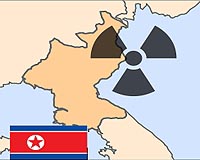| . |  |
. |
Baghdad (AFP) Nov 16, 2009 Vilified as a nuclear bomb-seeking threat to world peace before the 2003 invasion that toppled Saddam Hussein's regime, Iraq now wants access to civilian nuclear power for its economic and energy needs. Science and Technology Minister Raed Fahmi, in an interview with AFP, called for the international community to lift the Saddam-era UN resolutions which still stand in its path. "Our nuclear strategy is for civilian application of atomic energy and we believe we have the right and that certain obstacles contained in Resolution 707 should be lifted," he said. "We have a clear and transparent political strategy in close coordination with international bodies, and Iraq has the right to certain of its capacities," the minister said. But Fahmi stressed no political decision had yet been taken to build a nuclear power plant. UN Security Council Resolution 707, among the punitive measures slapped on Iraq in August 1991 for Saddam's invasion of Kuwait, bans all nuclear activity in the country until the Council certifies it respects non-proliferation treaties. Fahmi said the process of ratifying international treaties has started. "We are working to put into practice and respect all Iraq's commitments, and we have raised this issue with the IAEA," the International Atomic Energy Agency, the minister said. Iraq is one of the world's top oil producers and has huge reserves but still suffers power cuts due to a rundown power supply network devastated by Saddam-era sanctions and decades of conflict. It has launched a massive programme to build new power plants which will take several years to become operational and go online. "There is a future for clean renewable energies and nuclear power is a choice for many countries. We have electricity problems and this is a possible choice," said Fahmi. He revealed Iraq has launched a programme for energy sector staff to receive training from the IAEA. "We are increasing our knowledge, to prepare our staff in terms of training in case a decision is taken," the minister explained. "We have a technical cooperation programme with the IAEA, there are training courses and conferences in which we take part. We have been invited and have been given the right to take part in technical cooperation" programmes. Under Saddam, Iraq sealed a 1976 deal with France to build a nuclear reactor near Baghdad, where construction started three years later. But in June 1981, during the Iran-Iraq war, Israel sent warplanes to bomb the unfinished Osirak reactor, charging that the now executed dictator's aim was to build nuclear weapons. Sweeping away the Saddam era, the government in 2008 sold and transported its uranium concentrate -- or "yellow cake," which is partially processed uranium ore -- to Cameco of Canada. In February, Electricity Minister Karim Wahid invited France, which opposed the US-led invasion which overthrew Saddam over charges of concealing weapons mass destruction that proved false, to help Iraq build a new nuclear plant. Share This Article With Planet Earth
Related Links Learn about nuclear weapons doctrine and defense at SpaceWar.com Learn about missile defense at SpaceWar.com All about missiles at SpaceWar.com Learn about the Superpowers of the 21st Century at SpaceWar.com
 N. Korea can prosper if it gives up nuclear weapons: Obama
N. Korea can prosper if it gives up nuclear weapons: ObamaSeoul (AFP) Nov 13, 2009 North Korea can achieve security and prosperity if it honours its commitment to give up nuclear weapons, US President Barack Obama said in an interview published Friday. The impoverished communist state's nuclear and missile programmes are a grave concern to the world and make the North itself less secure, he told South Korea's Yonhap news agency in a written interview. But "negotiations ... read more |
|
| The content herein, unless otherwise known to be public domain, are Copyright 1995-2009 - SpaceDaily. AFP and UPI Wire Stories are copyright Agence France-Presse and United Press International. ESA Portal Reports are copyright European Space Agency. All NASA sourced material is public domain. Additional copyrights may apply in whole or part to other bona fide parties. Advertising does not imply endorsement,agreement or approval of any opinions, statements or information provided by SpaceDaily on any Web page published or hosted by SpaceDaily. Privacy Statement |